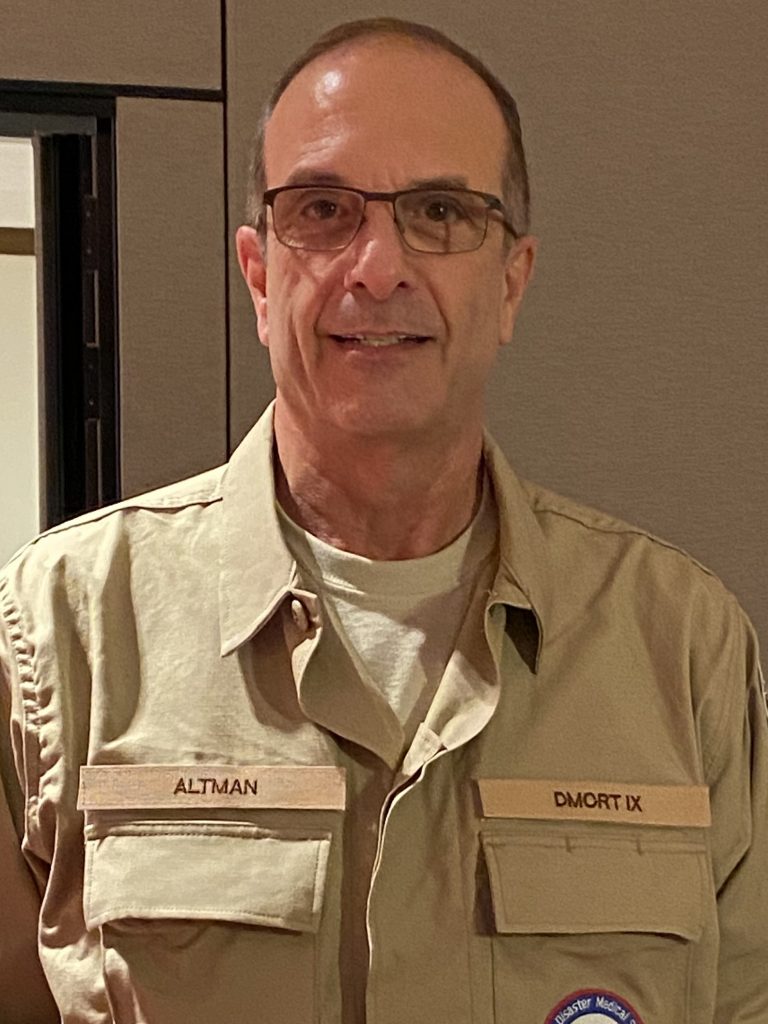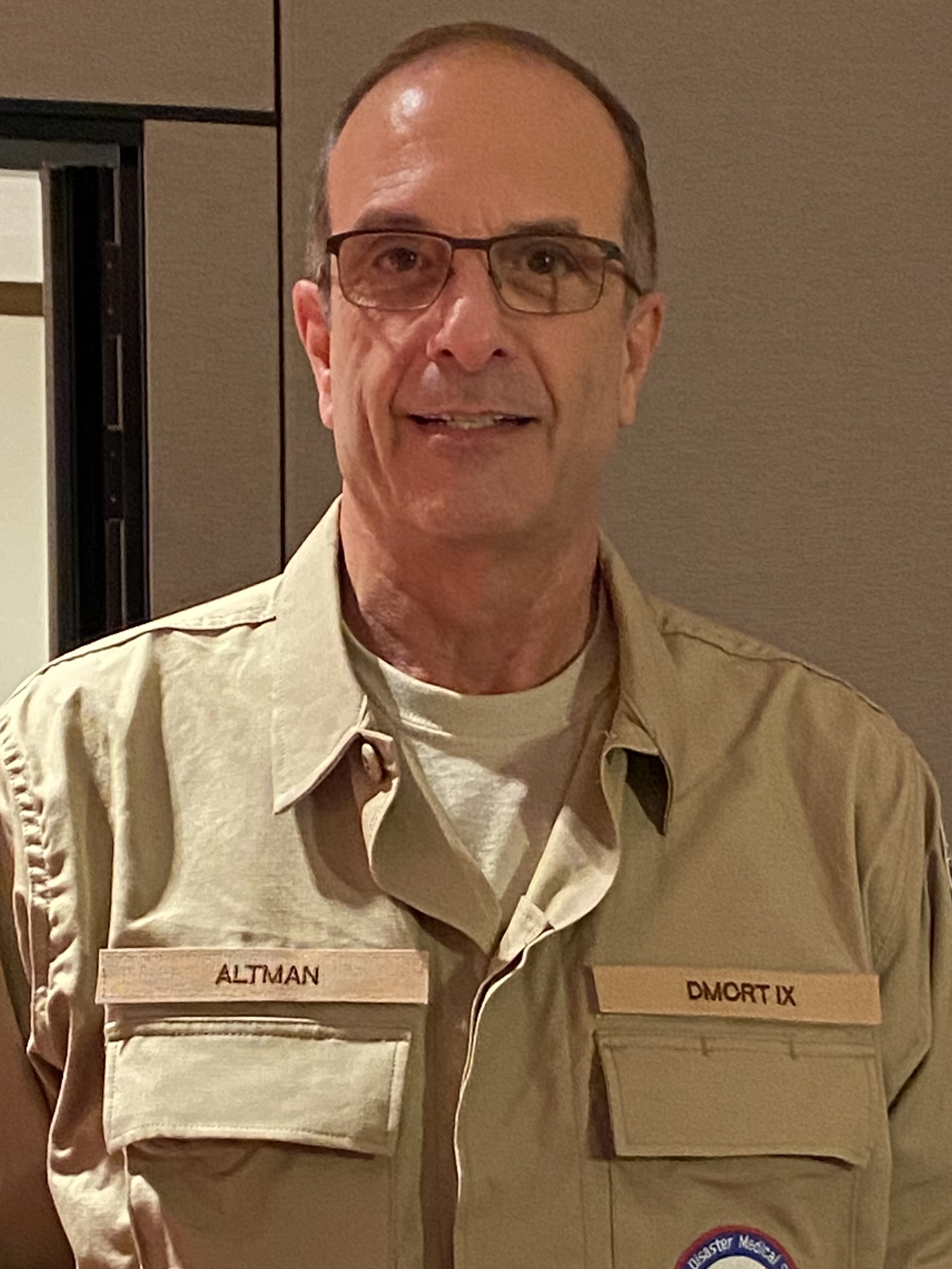Panel discusses public health response to pandemics
Posted: October 12, 2020
A.T. Still University (ATSU) held a virtual panel discussion last Thursday focused on public health response to pandemics, which was the final lecture of the National Primary Care Week series. Featured guests included Donald Altman, DDS, DHSc, EdD, MPH, MBA, MA, dean, ATSU’s College of Graduate Health Studies (ATSU-CGHS); Michael McCunniff, DDS, MS, adjunct professor, ATSU-CGHS; Adam Moore, DHA, ’16, CMPE, executive director of clinical operations, ATSU Gutensohn Clinic.
This discussion started with Drs. Altman and McCunniff discussing their volunteer service as members of National Disaster Medical Service (NDMS). When a disaster or emergency situation arises that requires additional support beyond what one state can accommodate, NDMS will be activated and deployment orders will be sent out to volunteer professionals.
Drs. Altman and McCunniff work specifically on the Disaster Mortuary Operational Response Team (DMORT) where they work to identify those who have passed away during an emergency or disaster. Both doctors have been deployed to various locations during the COVID-19 pandemic. These deployments were different, however, as there were no deceased people to help identify, they were utilized as part of the Disaster Medical Assistance Teams (DMAT).
“What happens in an emergency situation for a disaster response is that NDMS needs as many people as possible to help out. There are never enough people,” Dr. Altman said. “Even though there are 5,000 people in it, everybody’s not deployable at the same time.”
“I was the second wave that was sent to Travis Air Force Base. We were finishing up with the very initial group who came over from Wuhan, China. I think I had the last four days of their 14-day quarantine,” Dr. McCunniff said. “We were assessing temperatures and monitoring their wellbeing, mental health.”
Prior to joining ATSU, Dr. Moore took part in a lot of Federal Emergency Management Agency (FEMA) disaster and pandemic planning, which happened to be right when the H1N1 pandemic was in full swing. That training was called into action again during the COVID-19 pandemic when Dr. Moore was an active part of the planning from the beginning.
“In February when we started getting the news that COVID was entering our country, teamwork and communication started developing and taking place,” Dr. Moore said. “We had two different types of coalitions happen at that point, one was academic pivots and the other one was clinical operations.”
Dr. Moore discussed some of the actions that ATSU took to keep students, faculty, and staff safe, including travel restrictions, training videos for COVID testing, acquiring personal protective equipment (PPE) for clinics, and screening protocols for essential people entering the buildings.
“Teamwork was the key; no decision was made in isolation. There were a lot of teams built, committees, and coalitions. A lot of smart people deliberating on what’s best, while following the protocols that keep coming out and changing,” Dr. Moore said. “We were meeting all the time, pivoting, and adapting to what we knew, the knowledge was so different from week to week.”
The common theme that resonated between the three speakers was flexibility. Even with consistent training and education, every situation is different, and you may be asked to step in and help wherever it is needed, even if it’s not your area of expertise.
“The thing that is important to remember for those who are interested in becoming part of these emergency response teams is the word flexibility,” Dr. McCunniff said. “It doesn’t matter what you’re trained to do, if it’s something different, then you go with that.”
